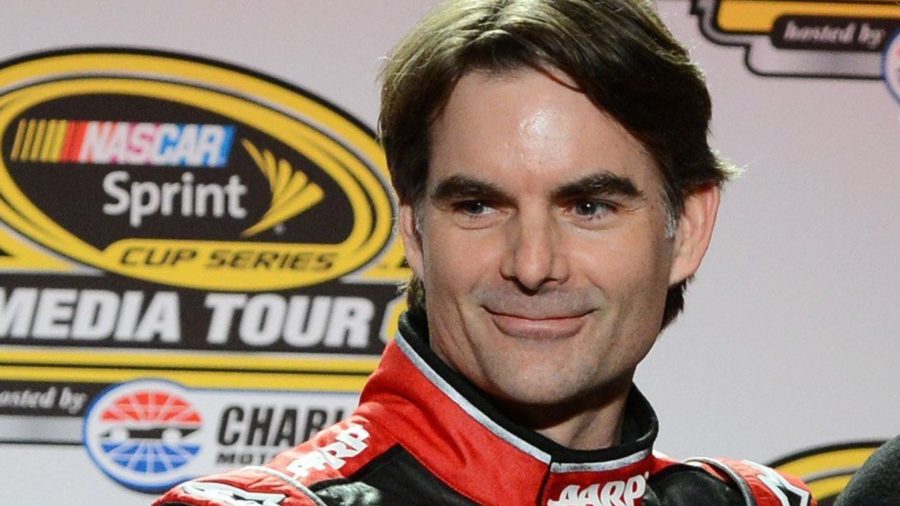
Imago
NASCAR Sprint Cup Series driver Jeff Gordon, left, says he won’t race full-time after the 2015 season. Here, Gordon shakes hands with long-time team owner Rick Hendrick last year.

Imago
NASCAR Sprint Cup Series driver Jeff Gordon, left, says he won’t race full-time after the 2015 season. Here, Gordon shakes hands with long-time team owner Rick Hendrick last year.
In the high-stakes world of NASCAR playoffs, decisions that shape the championship chase often spark intense debate. The inclusion of Jeff Gordon in the playoffs in 2013 was a move that created ripples of controversy. Controversies around race results and playoff eligibility decisions are nothing new in NASCAR, but when a legendary driver is involved, every detail is scrutinized. And Gordon’s inclusion episode has recently been dissected by those who were behind the scenes.
Watch What’s Trending Now!
The controversy took place when multiple drivers from their teams at Richmond manipulated their positions that unfairly changed the playoff look. More than a decade after the event, a former NASCAR official lifted the veil on the deliberations and rationale behind adding Gordon to the playoff field. Their revelations provide new insight into the complexities and pressures that accompany such crucial calls, reminding fans and critics alike that the sport’s integrity is a careful balance of fairness and circumstance.
ADVERTISEMENT
Why was Jeff Gordon included?
In a candid exchange, a former NASCAR official, Robin Pemberton, who had a role in the decision-making process, shared a valuable perspective about adding Jeff Gordon to the playoffs. According to him, no single person made the call; rather, it was a collective decision influenced by multiple voices, each weighing in on NASCAR’s competitive and operational realities.
Speaking to Dale Jr, Pemberton recalled, “No decision was ever made by one person for good reason… one may have a bigger voice… and it’s good for your sanity… for a lot of reasons.” The official revealed that the playoff lineup got reshuffled, with some drivers removed and one extra spot created to accommodate Gordon. His inclusion was framed as a pragmatic choice rather than a merit-based selection, noting Gordon “wasn’t having one of his better years… I think his back was bothering him and stuff… but that was a decision by a few people… right, wrong or indifferent,” as Pemberton stated.
View this post on Instagram
ADVERTISEMENT
This collective decision, made after several races and eliminations, was characterized as an extraordinary move made due to extraordinary circumstances. It was a response to the playoff structure and the context of that season’s competition rather than a straightforward qualification. Pemberton described the decision-making days as a “freaking week,” highlighting the pressure and intensity that defined this controversial moment.
The reassignment of playoff spots was a delicate affair; it involved more than just statistics and points, with sportsmanship, fairness, and precedent all influencing the outcome. This explanation confirms that the governing bodies aimed to preserve the playoffs’ integrity while acknowledging the complicated dynamics that sometimes necessitate exceptions.
ADVERTISEMENT
Top Stories
Carl Edwards’ Iconic Car Set to Return at Daytona 500 with Brad Keselowski’s RFK

Hailie Deegan Teases Major Career-Turning Announcement After Securing Full-Time Racing Deal

Tony Stewart’s Long-Awaited NASCAR Return Backfires as Daytona Entry Draws Harsh Reality Check

Fans Forced To Recall Phoenix Drama as Daniel Suarez and Michael McDowell’s Friendly Scuffle Reopens Old Wounds

America’s Favorite Daredevil Set to Challenge Tony Stewart at NASCAR’s Daytona Race

The broader implications and NASCAR’s playoff philosophy
This revelation opens a window into NASCAR’s evolving approach to playoff eligibility and fairness, especially concerning legendary drivers like Gordon. It underscores a fundamental tension in the sport: balancing the competitive purity of a points system against the human and situational factors that impact racing. Decisions such as adding a 13th driver to the Chase, while controversial, reflect NASCAR’s willingness to adapt rules for what it perceives as fairness under complex circumstances.
Earlier in 2025, further complicating the playoff landscape, NASCAR faced ongoing debates about new rules, such as the “Kyle Larson Rule,” introduced to tighten eligibility for playoff waivers. Jeff Gordon on SiriusXM NASCAR Radio talked about the rule, saying, “Last year. Being right there in it the whole time, I flew on the plane with Kyle from Indy to Charlotte. And I personally don’t think they needed to take any further steps, and here’s my reason why: I saw the hurt on Kyle Larson’s face, and I could feel him letting his team down. I had the conversations with Rick and the conversations he’s having with NASCAR, as well as Chad Knaus and Jeff Andrews. I heard from fans and sponsors, and if you’ve never owned a team or driven a race car, then I understand why you feel like you need to take extra action.”
ADVERTISEMENT
This situation with Gordon’s playoff inclusion illustrates how NASCAR’s decisions extend beyond the straightforward math of wins and points. They involve nuanced judgment calls reflecting the spirit of competition and consideration for the sport’s history and personalities. The balance NASCAR seeks is fragile; any move that benefits one driver inevitably affects others, reshaping playoff dynamics and fan expectations.
Ultimately, Pemberton’s insight demystifies a chapter that had left many wondering about the legitimacy and motivations behind Gordon’s playoff berth. It places the controversy within the broader narrative of NASCAR’s challenges in maintaining fairness while honoring its champions and safeguarding the sport’s excitement and unpredictability. This layered context helps fans appreciate that playoff decisions, especially controversial ones, are never taken lightly and are often the product of collective deliberation, grappling with real-world complexities rather than simple rulebook applications.
ADVERTISEMENT
ADVERTISEMENT
ADVERTISEMENT
